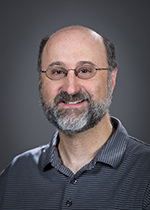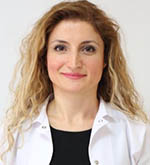Developmental Behavioral Pediatrics Fellowship

Consistent with our emphasis on providing care in a community-oriented context, OHSU’s Fellowship in Developmental and Behavioral Pediatrics is based in the community, in a quiet neighborhood, on the edge of the University of Oregon campus, in Eugene, Oregon. Our program is an integral component of the Institute on Development and Disability and the Child Development and Rehabilitation Center at OHSU and our fellows enjoy regular opportunities to participate in clinical, research and teaching opportunities at our Portland campus. Our location in Eugene also offers opportunities for unique clinical, research, and teaching opportunities through the University of Oregon and through our partnership with other community-based programs and agencies.
We offer comprehensive, outstanding fellowship training in Developmental and Behavioral Pediatrics. Training in Developmental and Behavioral Pediatrics entails the development of expertise in the diagnosis and management of conditions, including: Autism Spectrum Disorder, Intellectual Disability and other Learning Disabilities, various Neurodevelopmental Disabilities, and Emotional and Behavioral Disorders. Our fellows learn from faculty in Developmental-Behavioral Pediatrics and Neurodevelopmental Disabilities, and from pediatric sub-specialists in the fields of Psychiatry, Neurology, Genetics, and Physical Medicine and Rehabilitation. Our program emphasizes mentoring in family-centered care and therapeutic communication.
We aspire to improve the care of children and youth with developmental and behavioral conditions by mentoring pediatricians to become outstanding Developmental-Behavioral Pediatricians. We seek applicants who desire to become leaders in clinical care, academic training, research, and advocacy for individuals with developmental and behavioral conditions. The Developmental and Behavioral Pediatrics Fellowship program collaborates with the University Center of Excellence in Developmental Disabilities and the Leadership Education in Neurodevelopmental and Related Disabilities programs to provide a unique interdisciplinary training experience, which includes trainees in psychology, social work, physical therapy, occupational therapy, speech language pathology, special education, genetics, psychiatry, community services and advocacy. Comprehensive training takes place in a supportive and nurturing environment while providing a curriculum tailored to the career goals of the individual trainee. The faculty have widely varied interests and are excellent, dedicated clinical, academic, and research instructors.
For more information about the OHSU Developmental and Behavioral Pediatrics Fellowship Program, please feel free to contact me by email at phelpsr@ohsu.edu. I look forward to the opportunity to share information about our unique program.
Best Regards,
Randall Phelps, M.D., Ph.D.
Professor of Pediatrics
Program Director, Fellowship in Developmental and Behavioral Pediatrics
Program aims
- To prepare Developmental Behavioral Pediatricians who are skilled in interdisciplinary collaboration
- To prepare Developmental Behavioral Pediatricians who are competent and confident to independently diagnose and treat a broad variety of conditions, including: Autism, Intellectual Disability, various disorders of learning and executive function, a wide variety of genetic conditions, trauma and stressor related disorders, sleep, and elimination disorders, etc.
- To prepare Developmental Behavioral Pediatricians who are prepared for community-based collaboration
- To prepare Developmental Behavioral Pediatricians who are also skilled in Neurodevelopmental Disabilities
- To prepare Developmental Behavioral Pediatricians for academic careers
Benefits
Please see the Department of Pediatrics fellowship page for departmental benefits available to all pediatric fellows, and the OHSU GME page for Employment and Benefits information, including salary, transportation and insurance.
Curriculum
Clinical training
The primary training site for the fellowship is in Eugene, OR, on the University of Oregon campus.
Throughout the fellowship program, fellows participate in:
- At least weekly in Child Development team clinics, including staffing meetings with diverse teams comprised of various combinations of: Psychology, Speech-Language Pathology, Occupational Therapy, and Physical Therapy.
- At least weekly in DBP continuity clinic, learning to independently diagnose and manage common D-B conditions, with close mentorship from faculty.
From month 7 through 36, fellows participate monthly in:
- Psychiatry Clinic, with a focus on building expertise in the diagnosis and management of mood disorders, emerging thought disorders, personality disorders, somatoform disorders, etc, and to learn how to effectively collaborate with colleagues in Psychiatry.
- Neurology Clinic, to build familiarity with common neurological conditions which are often co-morbid with D-B conditions, and to learn how to effectively collaborate with colleagues in Neurology.
- Neurodevelopmental clinics, learning the diagnosis and care of such conditions as cerebral palsy, spina bifida, muscular dystrophies, and various syndromes which impact motor function, and to learn how to effectively collaborate with Physical and Occupational Therapists.
- Feeding Clinic, learning diagnosis and care of feeding disorders while collaborating with Occupational Therapy, Registered Dietician, and Nurse Practitioner.
Throughout the first year, fellows participate at least monthly in the Relief Nursery outreach clinic, where they observe at-risk children at therapeutic preschool and meet with and collaborate with teachers and therapists in the diagnosis and care of these children.
In the second and third year of the program, fellows participate in:
- Adolescent Transition clinic, where they collaborate with University of Oregon faculty in Educational Psychology and Transition, to learn about community resources to support successful transition
- Rural outreach clinics, which entails travel to small outlying communities to provide care, to meet rural providers and experience first-hand the challenges of obtaining sub-specialty care far from the academic center.
Throughout the fellowship program, Fellows participate regularly in a variety of sub-specialty clinics, including:
- Physical Medicine and Rehabilitation
- Genetics
- Down Syndrome
- Rett Syndrome
Scholarship and professional development
With regular guidance from their Scholarship Oversight Committees, participation in monthly research seminars, and in collaboration with colleagues in Human Development at OHSU and the University of Oregon, fellows complete original research projects, including IRB proposal, grant applications, primary data collection and analysis, and disseminate the results through national conferences and publications.
Fellows receive mentoring through our University Center for Excellence in Developmental Disability in the process of completing a Quality Improvement project.
Fellows receive mentoring in other scholarly activity, such as book and manuscript reviews, textbook chapter writing, curriculum development, and are encouraged to take leadership positions in the community and in national societies, etc.
Didactics
The following educational sessions make up our curriculum:
- Weekly Neuroscience conference (PGY-4)
- Monthly 1 hour didactics in core topics in Developmental Behavioral Pediatrics (all 3 years)
- Twice-monthly Leadership Education in Neurodevelopmental Disabilities (LEND) seminars and workshops (PGY-4)
- Weekly Pediatrics Grand Rounds (all 3 years)
- Monthly Psychiatry didactics (Months 7 through 36)
- Regular research seminars, in collaboration with the Center on Human Development at the University of Oregon and OCTRI at OHSU.
- Monthly Developmental-Behavioral Pediatrics:
- Journal Club
- Mortality and Morbidity/ Challenging Case Conferences
- Annual participation in the Society of Developmental Behavioral Pediatrics meeting.
There are multiple other learning opportunities throughout out the OHSU and University of Oregon campuses, including those specific to fellows’ chosen areas of concentration for scholarly activity and Quality Improvement activity.
Teaching opportunities
- Fellows spend two days per month at the Portland campus, teaching pediatric residents on their DB rotations and in their continuity clinics, participating in conferences and giving formal presentations
- Fellows also teach pediatric residents and other trainees on their rotations at the Eugene campus
Third-year fellow

Duygu Unkaracalar, M.D.
Dr. Unkaracalar completed Pediatrics residency in the Bronx, NY. She practiced Pediatrics in Antalya, Turkey, for a decade before coming to OHSU for fellowship in 2023. Her clinical interest focuses on early ASD diagnosis. Her research and QI project is centered around the study of the implementation of system of PCP phone consultation of DBPs to improve access to DBP care.
First-year fellows
Judy Black, M.D. (starting September 2025)
Jayme McCallister, M.D. (starting January 2026)
Faculty
-
- Sue Colasurdo, M.D.
- Child and Adolescent Psychiatrist
-
- Rhonda M. Eppelsheimer, M.S.W. (she/her/hers)
- Licensed Clinical Social Worker
-
- Mario C. Petersen, M.D.
- Associate professor of pediatrics; director, Feeding Clinic in Eugene; medical director, Spina Bífida Clinic in Eugene
-
- Jamie Rabot, M.D.
- Development Behavioral Pediatrician
-
- Kevin Senn, M.D.
- Developmental Behavioral Pediatrician
-
- Amber Wright, M.S.N., RN, CPNP-PC, PHMS
- Pediatric Nurse Practitioner
How to apply
To apply to the OHSU Developmental Behavioral Pediatrics Fellowship Program, please submit an application through the Electronic Residency Application Service (ERAS) website.
Application checklist (all submitted through ERAS):
- MyERAS application
- Personal statement
- Medical school transcript
- Medical Student Performance Evaluation (MSPE) from medical school
- Letters of recommendation (minimum 3)
- United States Medical Licensing Exam (USMLE) scores
Please also see the OHSU GME information on Applying to OHSU Residencies and Fellowships.
Oregon Health and Science University values a diverse and culturally competent workforce. We are proud of our commitment to being an equal opportunity, affirmative action organization that does not discriminate against applicants on the basis of any protected class status, including disability status and protected veteran status. Individuals with diverse backgrounds and those who promote diversity and a culture of inclusion are encouraged to apply. To request reasonable accommodation contact the Office of Civil Rights Investigations and Compliance at 503-494-5148 or ocic@ohsu.edu.
Contact us
Randall Phelps, M.D., Ph.D.
Program Director
phelpsr@ohsu.edu
Sarah Nolte, M.S., C-TAGME
Fellowship Program Technician
nolte@ohsu.edu
